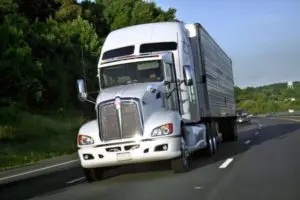Families leading the fight for safer trucks
Who doesn’t want safer trucks? Weighing 80,000 lbs and driven by truckers too often pushed to their physical and mental limits, a tractor trailer barreling down the highway at 70+ mph can cause unimaginable damage in an accident. Still, potentially life-saving measures leading the fight for safer trucks are the people who know too well the devastation these vehicles can cause — the parents of children killed in tractor trailer collisions. Their mission has become to improve safety regulations that can save lives and prevent other families from experiencing the unnecessary loss that they have. However, even when the benefits are obvious and the costs minimal, truck safety regulations stall.
Underride Guards
Two mothers have devoted their lives to advocating for better underride guards after their children were killed in underride crashes. Marianne Karth and Lois Durso both lost their daughters in crashes involving tractor trailers.
Current law requires rear underride guards but not side guards. And few of the rear underride guards currently in place can pass crash tests. The Insurance Institute for Highway Safety has begun testing underride guards and assigning them safety ratings, signaling a shift toward safer models. While this progress is encouraging, it may be years before the majority of trucks on the road are properly equipped.
In 2015, 301 people died in side underride collisions. A safe and sturdy underride guard is a relatively inexpensive and simple measure that could save hundreds of lives.
Speed Limiters
 “This ought to be the biggest slam dunk you ever thought of,” said Steve Owings, whose son Cullum died in 2002.
“This ought to be the biggest slam dunk you ever thought of,” said Steve Owings, whose son Cullum died in 2002.
In September, lawmakers proposed legislation to require speed-limiting devices on newly built tractor trailers in an effort to improve highway safety and fuel economy. Leading these efforts is the family of man killed by a truck in 2002. Cullum Owings was stopped in traffic on his way back to college after a holiday break, when a truck struck him from behind. The truck driver had been speeding and couldn’t stop in time.
Proponents of speed limiters for trucks argue that this is a matter of simple physics – large trucks moving at high speeds cannot come to a stop as quickly as other vehicles. Even if the truck driver sees an obstacle in the road or traffic ahead, they cannot always bring the massive vehicle to a stop in time to avoid a collision. They also do far more damage when collisions do occur.
Not only would this measure improve safety, but it would also cut fuel costs by up to an estimated one billion dollars.
A reduced speed limit for large trucks has resulted in fewer truck accident deaths in Ontario.
Progress Toward Safer Trucks is Slow Moving
Efforts spear-headed by bereaved families and backed up by researchers, safety experts, and even trucking industry groups continue to stall. Even those proposals that seem like a “slam dunk” get shot down. The already slow regulatory process was stalled further by an order signed by the president in January, requiring agencies to eliminate two existing rules for each new one and placing caps the costs of new regulations. This includes regulations and rules designed to protect highway safety.
As truck accident lawyers, we have seen too often the damage caused by lax or poorly enforced regulations in the trucking industry. Truckers suffer, as well as the rest of the traveling public. After decades in this field, we don’t just handle trucking cases. We advocate for improvement of highway safety, especially in the trucking industry, so that tragic accidents involving trucks happen less often.
Posted in Truck Accidents.









